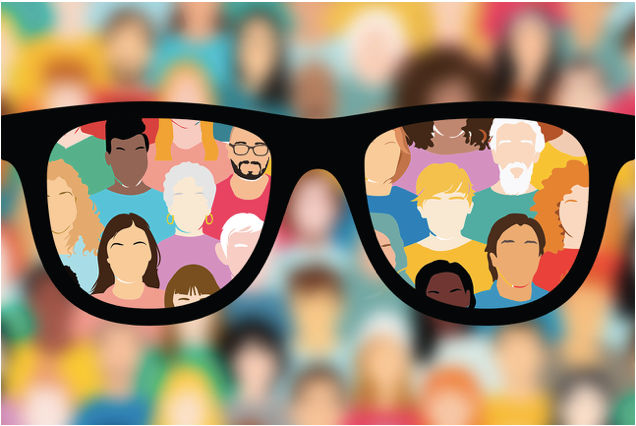
A ‘Return to Visibility’, Opportunity to Gain Perspective
Tina Lawler McHugh
Senior Research Associate
Published September 29, 2023
This fall we are seeing a renewed push to return employees to the office, which is forcing organizations to examine and articulate how the workplace can work for everyone. But ‘work’ means a place where people can feel productive, engaged and recognized for their contributions; and ‘everyone’ means accounting for the many, many identities, skills and experiences that employees bring to the table.
A return to office means a ‘return to visibility’, so it is worth reflecting on what that means for employees. It could mean some of the gains in work/life balance and a sense of belonging that came with flexible work - especially for underrepresented groups like Black, LGBTQ+, women and employees with disabilities who show the strongest preference for hybrid and remote work - will be tested. It could mean pressure to ‘fit in’. And it will mean returning to - or encountering for the first time - a set of norms and a hierarchy that are not uniformly easy to navigate.
In a fascinating and timely discussion this month, we heard from Professor Lex Washington from Oklahoma State University about her work studying intersectionality among Black women leaders. Her research demonstrates the ways in which this group often feels both ‘invisible’ and ‘hypervisible’ and occupies an ‘outsider within’ status in their workplaces. She reminded us that intersectionality is about more than holding multiple identities at once - it is also about how these identities intersect with sources of power and privilege generally and in the workplace. She presented Sylvia Duckworth’s Wheel of Power/Privilege - a powerful tool for evaluating our own social identities and understanding the different levels of privilege - or marginalization - associated with them.
In our Fall Roundtable meeting next week, we will be exploring the intersection of mental health and well-being with identity and belonging. Among our Boston College Center for Work & Family member companies, there is a growing recognition that programming and benefits need to be tailored for different populations - starting with a much more nuanced understanding of employee identities and barriers to well-being. We look forward to hearing from our members Northrop Grumman and Broad Institute of MIT and Harvard on how they are partnering with ERGs and vendors to support groups like veterans, neurodiverse employees, women scientists, and first generation employees.
We are also excited to be kicking off our study of LGBTQ+ parents in the workplace, exploring the intersection of their LGBTQ+, parenting, and other identities in the workplace. As we interview parents, we are learning so much about the connection between workplace culture and employees’ feelings of safety, authenticity and engagement.
While “diversity” and DEI efforts are facing a backlash in many organizations, as employees return to office in pursuit of collaboration and camaraderie, there is an opportunity for teams to function better than ever. As Professor Washington suggested, they should prioritize learning about each other, reflecting on the multiple ‘visible’ and ‘invisible’ identities that all employees carry, and learn how to ‘perspective-take’. Looking for a place to start? Check out where you and your teammates fit on Duckworth’s Wheel of Power/Privilege...it may give you some new insights into yourself and others.
